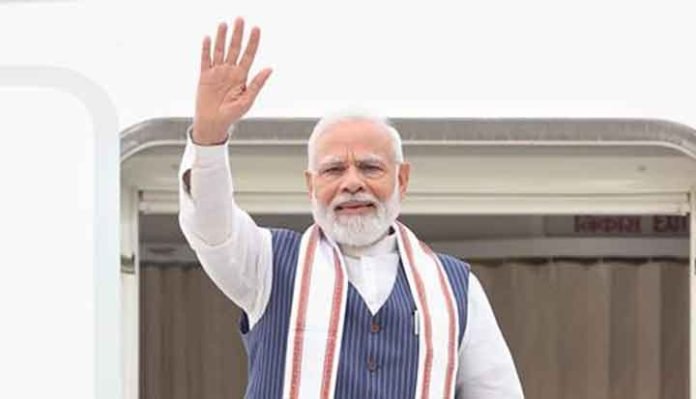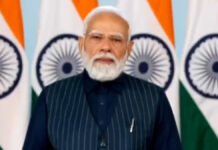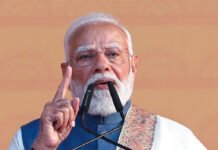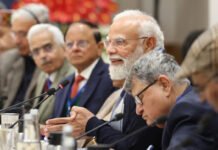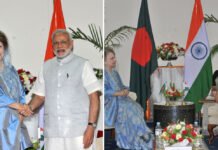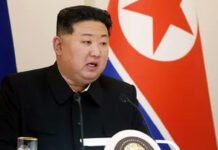INVC NEWS
New Delhi : Prime Minister Narendra Modi successfully concluded his diplomatic visits to Russia and Austria, arriving back in New Delhi early Thursday morning. His visits were marked by several key meetings and engagements aimed at strengthening bilateral ties and exploring new avenues for cooperation. In a post on X (formerly Twitter), PM Modi expressed gratitude towards the governments and people of both nations for their warm hospitality and fruitful discussions.
A Historic Visit to Austria
Prime Minister Modi’s visit to Austria was particularly significant, marking the first time in 41 years that an Indian Prime Minister has visited the country. During this historic trip, PM Modi emphasized the deepening friendship and expanding collaboration between India and Austria.
Warm Reception and Community Engagements
In Vienna, PM Modi participated in a variety of events and received an enthusiastic welcome from the Indian community. At a community event, chants of “Modi, Modi” echoed as the Prime Minister took the stage, showcasing the strong bond between India and its diaspora.
PM Modi expressed his delight at the opportunity to engage with the Indian community in Austria, highlighting their role in strengthening the cultural and economic ties between the two countries. He acknowledged their contributions and the significant impact of their efforts in fostering a positive image of India abroad.
Meeting with Austrian Leaders
PM Modi’s itinerary included important discussions with Austrian leaders such as Federal President Alexander Van der Bellen and Chancellor Karl Nehammer. These meetings focused on enhancing bilateral cooperation in various fields, including technology, skilled workforce mobility, and cultural exchanges.
Chancellor Karl Nehammer expressed appreciation for the teams involved in organizing PM Modi’s state visit, acknowledging the dedication and hard work of the Foreign Ministry, Federal Army, Police, and other officials. This visit underscored the professional planning and execution that facilitated meaningful dialogue between the two nations.
Expanding Bilateral Cooperation
The leaders of India and Austria discussed several key areas of collaboration, reinforcing their commitment to a robust and dynamic partnership.
Technological and Skilled Workforce Mobility
Both PM Modi and Chancellor Nehammer recognized the importance of expanding engagement in high-tech sectors. They highlighted the need for facilitating the mobility of skilled professionals and enhancing skill development initiatives. This focus aims to support mutual growth and address the demands of evolving industries in both countries.
Yoga and Ayurveda: Growing Interest in Austria
A notable aspect of the cultural exchange between India and Austria is the increasing interest in Yoga and Ayurveda among the Austrian people. This trend reflects a broader appreciation for holistic wellness practices and the rich cultural heritage of India. Both leaders commended this development and expressed their commitment to promoting these ancient traditions further.
Bilateral Migration and Mobility Agreement
The implementation of the Bilateral Migration and Mobility Agreement was another significant topic of discussion. This agreement provides an institutional framework to facilitate exchanges and manage irregular migration effectively. It represents a crucial step in fostering cooperation and ensuring streamlined migration processes between India and Austria.
Productive Visit to Russia
Prior to his visit to Austria, PM Modi engaged in substantial discussions with Russian leaders, focusing on enhancing strategic and economic ties between India and Russia.
Strategic Dialogues and Agreements
During his stay in Russia, PM Modi held high-level meetings with President Vladimir Putin and other senior officials. These discussions revolved around key areas such as defense, energy, trade, and cultural exchanges. The leaders explored avenues to strengthen their longstanding strategic partnership, emphasizing mutual interests and global stability.
Economic Collaborations
Economic cooperation was a major highlight of PM Modi’s visit to Russia. Both nations are keen on expanding their trade relations and exploring new investment opportunities. Discussions included potential collaborations in sectors such as energy, infrastructure, and technology.
Cultural and Educational Exchanges
Cultural and educational exchanges were also a focal point of the visit. PM Modi and President Putin discussed ways to enhance people-to-people connections and promote educational partnerships. These initiatives aim to foster a deeper understanding and appreciation of each other’s cultures and histories.
PM Modi’s Gratitude and Future Prospects
Concluding his two-nation tour, PM Modi expressed heartfelt gratitude towards the leaders and citizens of both Russia and Austria. He acknowledged the warm hospitality and productive engagements that characterized his visits. In his post on X, PM Modi stated that the visits were highly productive and held historical significance, setting the stage for enhanced cooperation and deeper ties.
Strengthening Global Partnerships
PM Modi’s visits to Russia and Austria underscore India’s commitment to strengthening global partnerships and fostering collaborative efforts. These diplomatic engagements reflect India’s proactive approach to international relations and its dedication to building mutually beneficial relationships with nations across the world.
Looking Ahead
As PM Modi returns to New Delhi, the outcomes of his visits to Russia and Austria are expected to pave the way for future collaborations and strategic partnerships. The discussions and agreements made during these visits highlight the potential for growth and development in various sectors, reinforcing India’s position as a key player on the global stage.
In conclusion, PM Modi’s successful visits to Russia and Austria mark a significant step forward in India’s diplomatic efforts. The fruitful discussions, strategic agreements, and warm receptions received in both countries underscore the importance of these relationships and the potential for continued growth and cooperation in the years to come.

